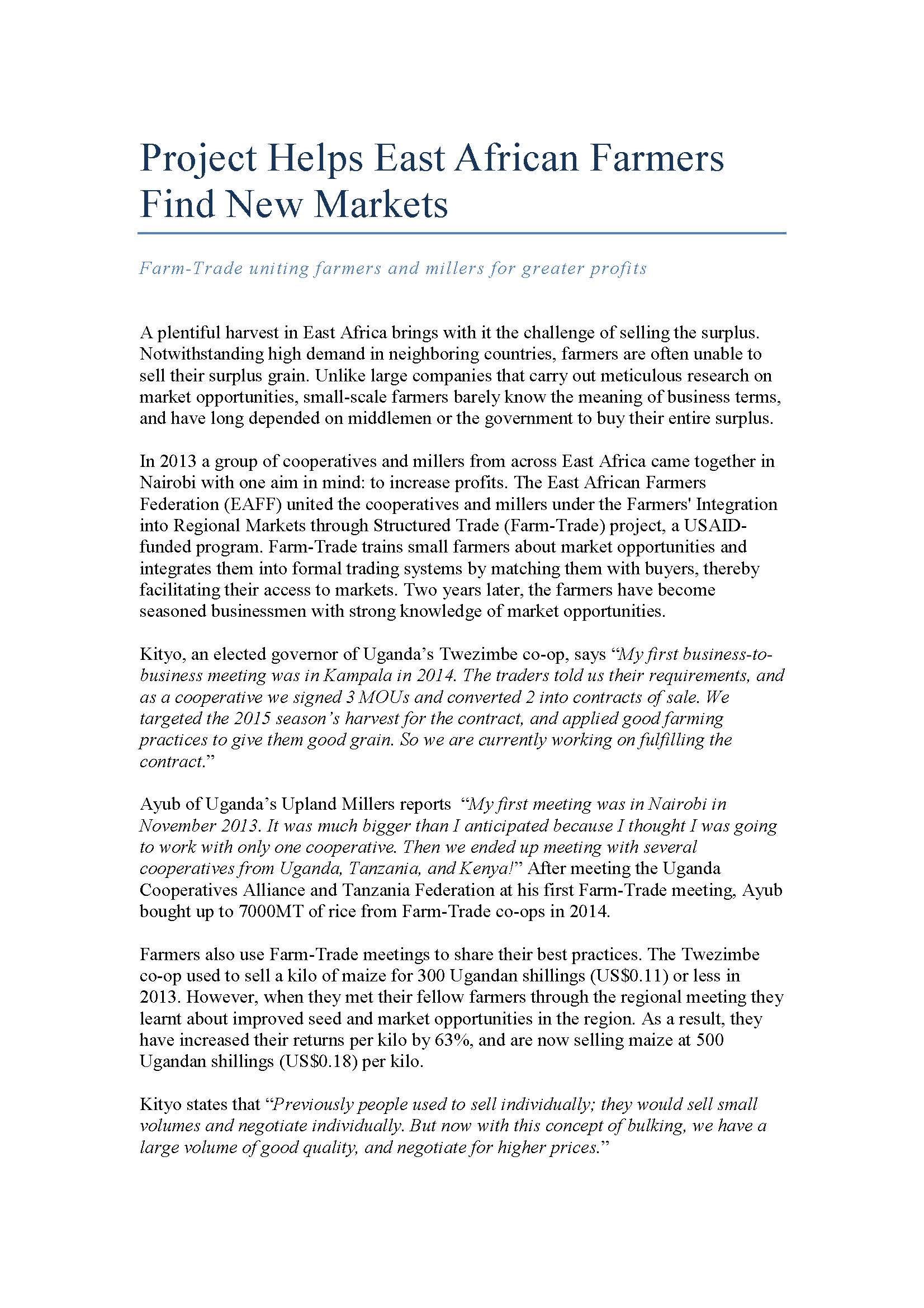Home » Project Helps East African Farmers Find New Markets
Farm-Trade uniting farmers and millers for greater profits
A plentiful harvest in East Africa brings with it the challenge of selling the surplus. Notwithstanding high demand in neighboring countries, farmers are often unable to sell their surplus grain. Unlike large companies that carry out meticulous research on market opportunities, small-scale farmers barely know the meaning of business terms, and have long depended on middlemen or the government to buy their entire surplus.
In 2013 a group of cooperatives and millers from across East Africa came together in Nairobi with one aim in mind: to increase profits. The East African Farmers Federation (EAFF) united the cooperatives and millers under the Farmers' Integration into Regional Markets through Structured Trade (Farm-Trade) project, a USAID-funded program. Farm-Trade trains small farmers about market opportunities and integrates them into formal trading systems by matching them with buyers, thereby facilitating their access to markets. Two years later, the farmers have become seasoned businessmen with strong knowledge of market opportunities.
Kityo, an elected governor of Uganda’s Twezimbe co-op, says “My first business-to-business meeting was in Kampala in 2014. The traders told us their requirements, and as a cooperative we signed 3 MOUs and converted 2 into contracts of sale. We targeted the 2015 season’s harvest for the contract, and applied good farming practices to give them good grain. So we are currently working on fulfilling the contract.”
Ayub of Uganda’s Upland Millers reports “My first meeting was in Nairobi in November 2013. It was much bigger than I anticipated because I thought I was going to work with only one cooperative. Then we ended up meeting with several cooperatives from Uganda, Tanzania, and Kenya!” After meeting the Uganda Cooperatives Alliance and Tanzania Federation at his first Farm-Trade meeting, Ayub bought up to 7000MT of rice from Farm-Trade co-ops in 2014.
Farmers also use Farm-Trade meetings to share their best practices. The Twezimbe co-op used to sell a kilo of maize for 300 Ugandan shillings (US$0.11) or less in 2013. However, when they met their fellow farmers through the regional meeting they learnt about improved seed and market opportunities in the region. As a result, they have increased their returns per kilo by 63%, and are now selling maize at 500 Ugandan shillings (US$0.18) per kilo.
Kityo states that “Previously people used to sell individually; they would sell small volumes and negotiate individually. But now with this concept of bulking, we have a large volume of good quality, and negotiate for higher prices.”
The Twezimbe co-op has 3,268 farmers and is one of many co-ops benefiting from Farm-Trade. Farm-Trade has linked grain supply with demand for it in East Africa by bringing farmers’ organizations together with buyers to create new trading opportunities.
Issuing Country
Date
Monday, January 25, 2016 - 12:30pm








Comment
Make a general inquiry or suggest an improvement.